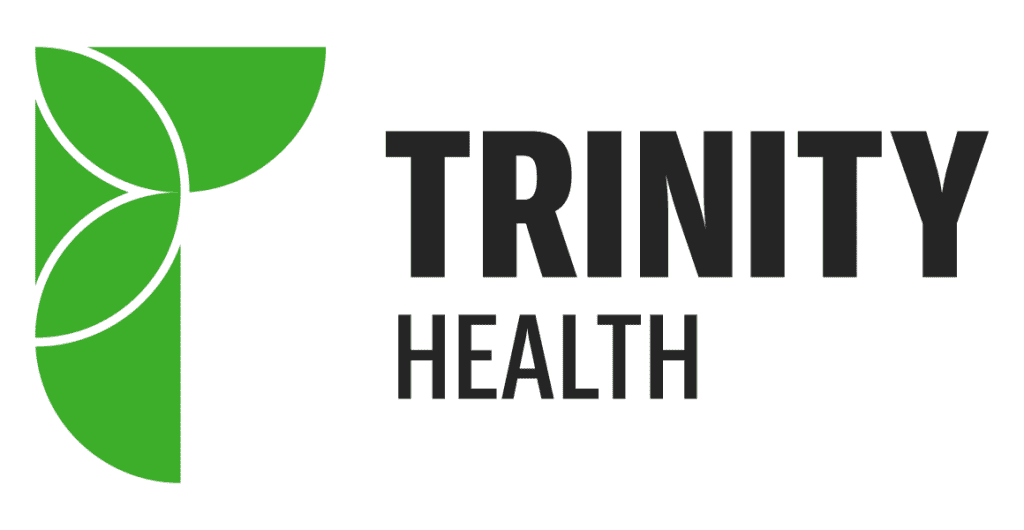

MINOT — Behavioral Health Services is launching an effort to increase awareness among healthcare providers and the public about Transcranial Magnetic Stimulation (TMS).
TMS is an FDA-approved, noninvasive, nonpharmacological treatment for people with major depression -- and now obsessive-compulsive disorder -- who’ve been unable to attain relief from antidepressants or other therapies. Marisa Jennings, MD, a board-certified psychiatrist who joined Trinity Health two years ago, is heading up an effort to talk about TMS and let people know it is available.
“TMS is an excellent option for patients with severe depression who haven’t responded to medications and who don’t want electro convulsive therapy,” Dr. Jennings said. “We also use it for pregnant women who want to avoid medications and for individuals who cannot tolerate them. Last month, our TMS system was FDA-approved as an adjunctive therapy for obsessive compulsive disorder, and we look forward to offering TMS for this population too.”
TMS for depression targets a key area of the brain’s emotion circuitry – the left dorsolateral prefrontal cortex – which is known to be underactive in clinical depression.
“When pulsed magnetic fields are applied to this area on a regular basis, brain function normalizes and the symptoms of depression remit,” Dr. Jennings explained.
Because TMS targets only a small part of the brain, it avoids systemic side effects such as sexual dysfunction. Some patients experience discomfort during or a mild headache after the first few treatments, but otherwise, side effects are typically few. Rare adverse events include hearing loss (if hearing protection fails) or seizures.
TMS is administered under the direction of a psychiatrist. The psychiatrist sets the parameters for TMS during the first session, which determines the location and intensity of subsequent treatments.
During a treatment, the patient sits in a special chair. A treatment coil, a device that emits a magnetic field, is placed on the patient’s head. As the magnetic field turns on and off, it directs an electrical current into the brain. TMS treatments last from 20-40 minutes and are delivered five days per week for approximately 36 treatments.
TMS is an in-office treatment and does not require anesthesia, so patients are able to drive themselves to and from the clinic. Patients who work or attend school usually continue to do so while they are receiving a course of TMS, says Dr. Jennings. She adds that out-of-town patients have the option of staying at the Trinity Health Guest House.
Not everyone with depression is a candidate for TMS. Generally, patients are eligible if they have severe symptoms and if they have failed multiple medications and treatment with psychotherapy.
Behavioral Health Services acquired the breakthrough technology in 2017 under the leadership of Medical Director Michael Dallalio, MD, and has employed it successfully, treating over 100 patients for major depression. So far, 72% of patients receiving TMS at Trinity have responded, with 53% achieving full remission. “I’m delighted with the opportunity that TMS is offering our patients,” Dr. Jennings said. “We’ve had patients who were plagued by depression for years feel they’ve gotten their lives back.”
Major Depressive Disorder affects more than 16.1 million American adults. While medications and therapy can be very effective in helping those with depression, a significant percentage of patients fail to receive adequate relief from these treatments. For more information or for a TMS consultation, call Trinity Riverside at 701-857-5998.
The Trinity Health Center for Diabetes Education is accepting registrations for Weigh 2 Change, a CDC-approved diabetes prevention program that helps people with prediabetes take control of their health through nutrition, exercise, and support.
Interested persons are encouraged to attend one of two “Session Zero” meetings to learn about Weigh 2 Change and decide whether the yearlong program is right for them. The informational sessions are scheduled June 28 or July 19 from 12 to 1 p.m. in the Trinity Health Community Conference Room at Town & Country Center. RSVP is requested by calling the Center at 701-857-5268. Masks are required.
To be eligible for Weigh 2 Change, participants must be 18 years or older, be overweight, and be at risk for – or have – prediabetes. Disqualifying factors include pregnancy and already having a diagnosis of diabetes.
People who decided to commit to the program and are not covered by Medicare will be charged a fee of $220, which covers educational sessions and materials for the entire year. For more information, call the Center for Diabetes Education at 701-857-5268.